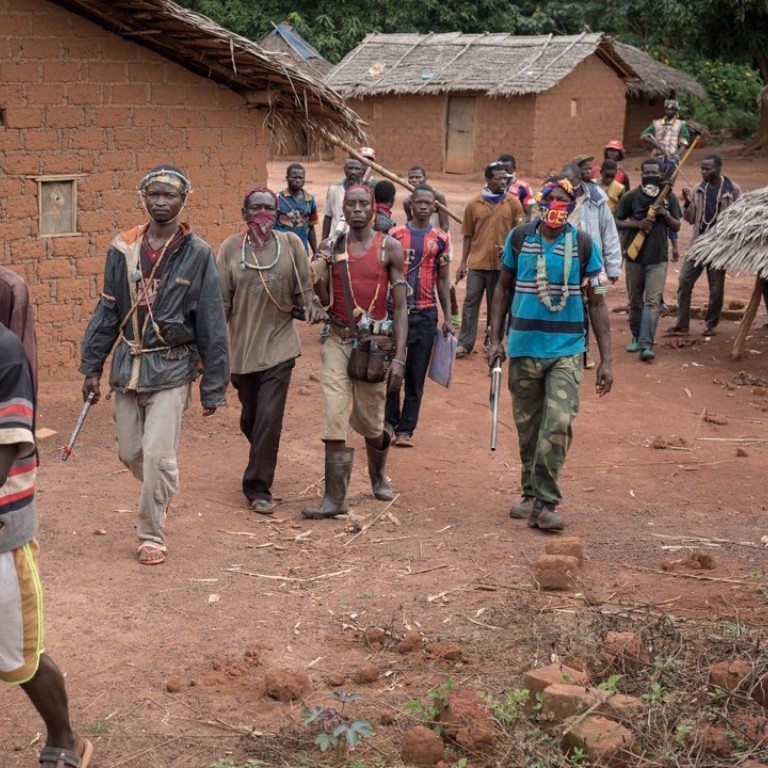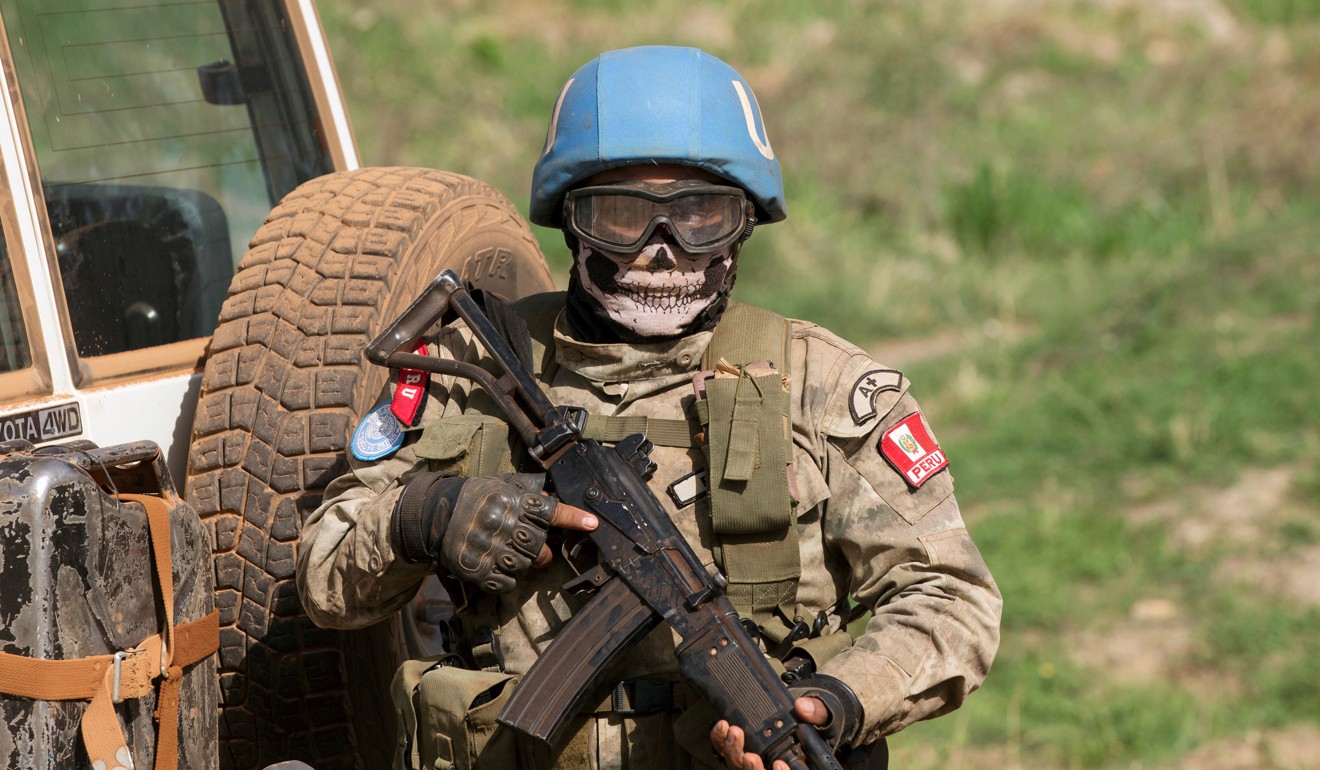
US, France and Britain freeze sale of Chinese weaponry to Central African Republic
The requested purchase of armoured vehicles, rockets and anti-aircraft guns from China Poly is supported by UN peacekeepers – but has raised concerns among the three Western members of the Security Council
France, Britain and the United States on Thursday put on hold a request from the Central African Republic for UN Security Council approval of Chinese weapons deliveries for its national forces.
CAR’s defence minister asked a UN sanctions committee on June 5 to grant an exemption to an arms embargo and allow the shipments of Chinese-made armoured vehicles, machine guns, tear gas grenades and other weaponry for its army and police.
France said it had “concerns concerning some lethal equipment included in this exemption request,” citing anti-aircraft weapons and ammunitions, according to a document obtained by Agence France-Presse.
The French mission to the United Nations requested “additional justifications concerning this lethal equipment to be able to take a decision.”

Britain said it was concerned that the shipments would pass through Cameroon unescorted to the border with CAR.
In her request to the United Nations, CAR Defence Minister Marie Noelle Koyara said the weaponry would help strengthen national forces who are “confronted with the strength and escalating violence of armed groups whose illegal activities pose a threat to civil order.”
The council imposed an arms embargo on the Central African Republic in 2013 when the country descended into bloodshed but its sanctions committee last year gave the green light for Russia to supply weapons to the national forces.
China wants to donate military equipment which includes 12 armoured vehicles and four assault vehicles, 50 pistols, six sniper rifles, 10 submachine guns with silencers and some 30 machine guns of various calibres.
The list of equipment from China’s Poly Technologies also includes 300 rockets, 500 anti-tank grenades, some 725,000 rounds of ammunition of various types and 15,000 tear gas grenades.
The request for the Chinese weaponry is backed by a European Union military training mission and by the UN peacekeeping operation MINUSCA, which has come under repeated attacks from armed groups. Five peacekeepers have been killed this year.
In its note detailing objections, the US mission to the United Nations argued that special training was needed to operate the grenade launchers “which we are not certain has been provided.”
Most of the armoured vehicles and other weaponry would be used by special forces trained by Rwanda and certified by the EU training mission. Units of CAR’s gendarmerie and police were trained by the United Nations police.
In her request, the defence minister argued that tear gas would help gendarmerie and police deal with crowd control as the “units do not currently possess any of this equipment designed to maintain order.”
The Central African Republic exploded into violence following the 2013 overthrow of long-time leader Francois Bozize, prompting France to intervene with its Operation Sangaris.
MINUSCA took over an African Union-led mission in 2014, deploying some 12,000 troops and police, but the country remains overrun with militias, many of whom claim to protect Christian or Muslim communities.
CAR’s leaders have repeatedly asked the Security Council to ease the arms embargo to allow shipments of equipment that will strengthen the national forces.

.png?itok=arIb17P0)